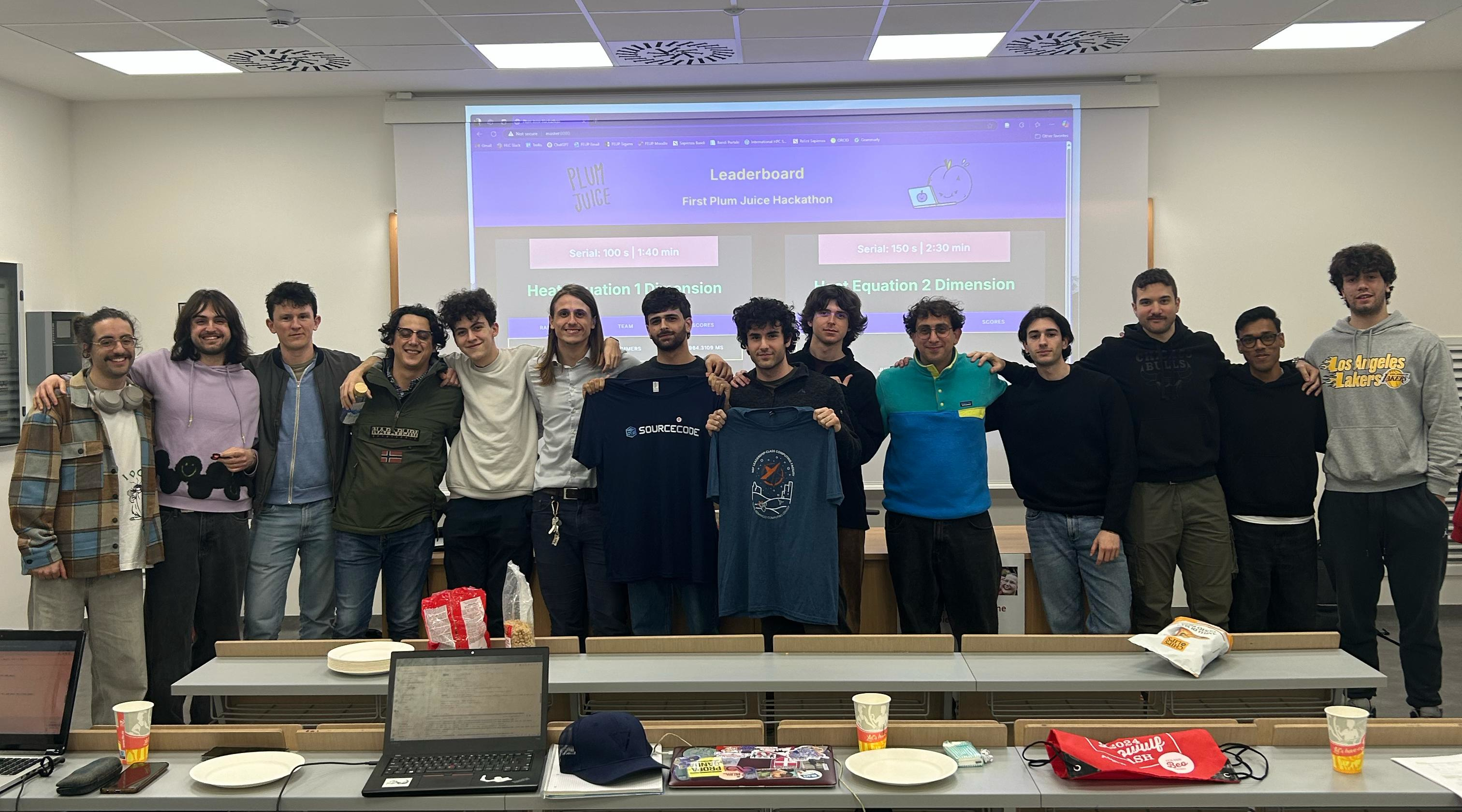Where were we: our first hackathon
Hey plummers! In the last couple of months we've been quite busy setting up new nodes on the cluster, arguing over git repositories' names (plumjuice-plumplum-wereallyjuicy-2-bis-new-final-forreal-finalfinal isn't that bad after all...), and most importantly planning and setting up our hackathon that took place on friday, February the 21st. A huge thank you goes to professor Daniele De Sensi that allowed us to use one of the university's classrooms to host the event, and obviously to all of you that showed up to take on this challenge. You were all amazing, and we sure hope to see you at the next one if we don't go completely crazy in the meantime trying to rename a branch with something like tmp-for-tests-idk-whatismylife.
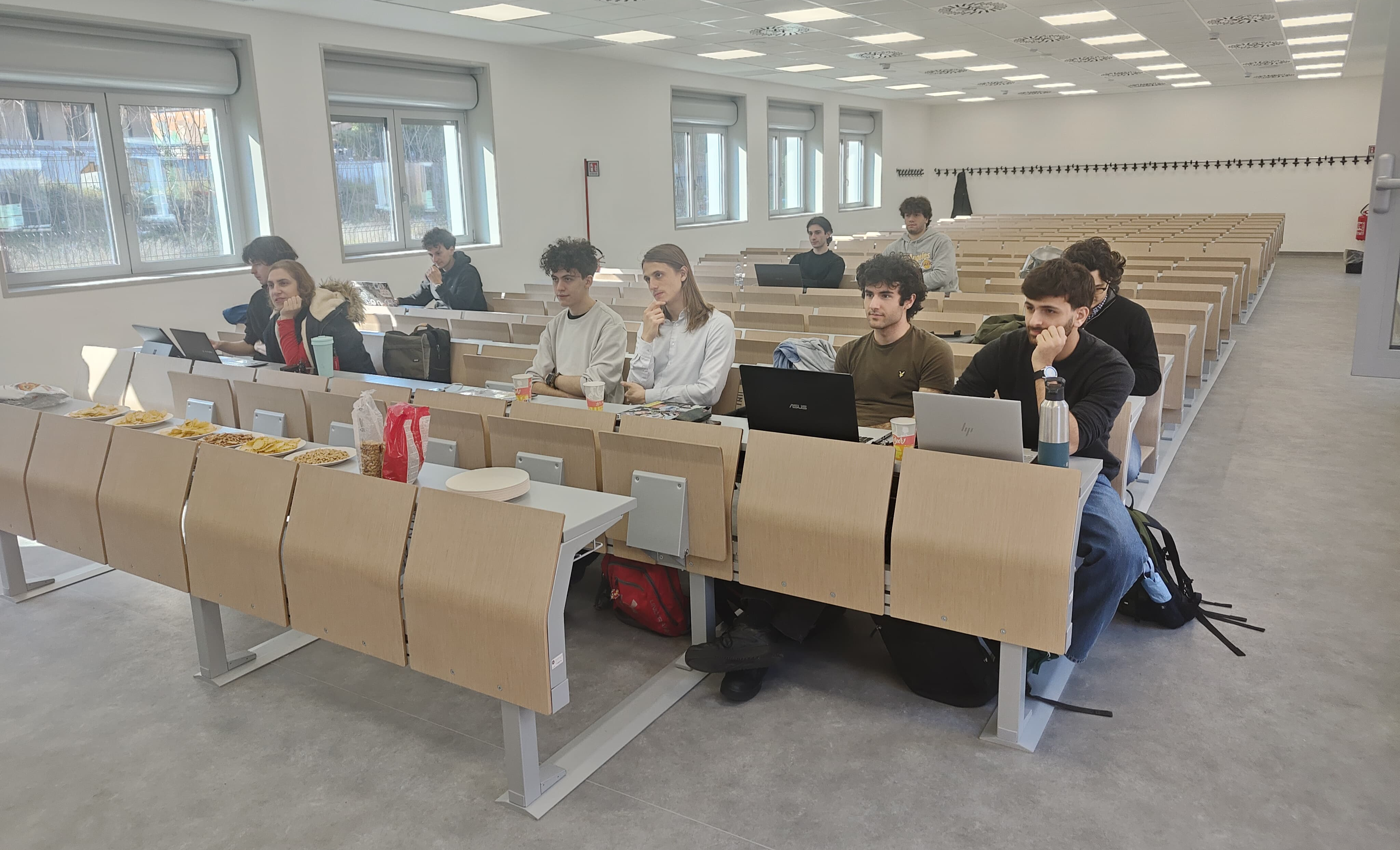
Everything went exactly as planned!
Haha, good one. That would have been nice, wouldn't it? As expected, we met some roadbumps along the way: templates not working because of small typos, tests not passing because of small typos, cluster configurations not working because of small typos... so, being the bright computer scientists that we are, we started to see a pattern and deduced one simple thing: we need more raspberries. And, despite all of this, everything was still fine and our sanity in perfect shape. Until the day the invitation to the event were sent. We, being the bright computer scientists that we are, have not quite got the hang of this "GitHub" thing yet, and leaked the two problems that students were supposed to solve efficiently at the event, resulting in an unexpected headstart for all the participants. Saverio, being the bright computer scientist that he is, decided that this event called for a complete rewrite of problems and tests with less than a week left; so, if your problems were so hard, you know whose fault it is (all of us, really).
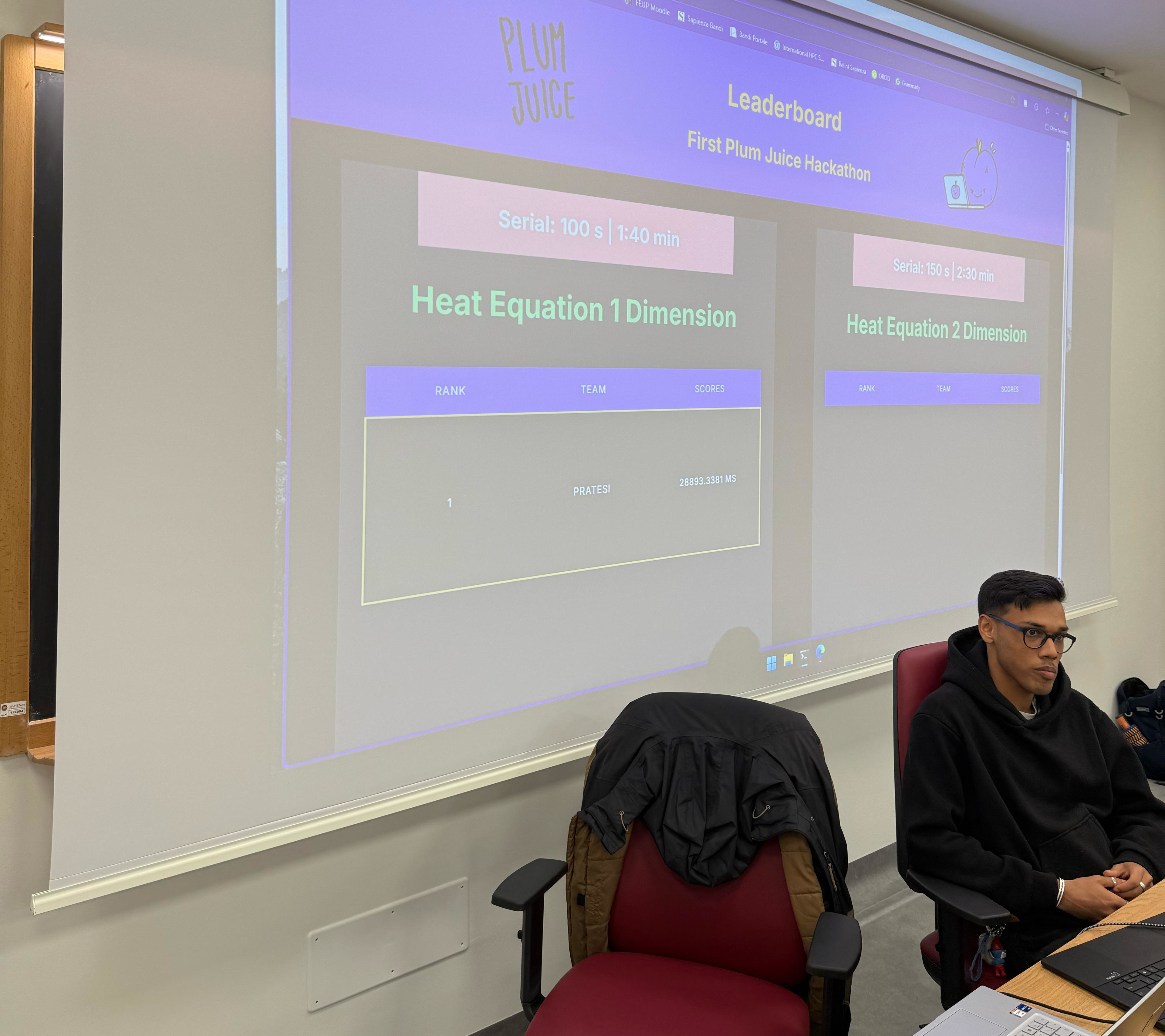
But what was there to hack in this thon?
To give you an idea of what an hackathon actually is, participants faced two similar yet different tasks that had to be solved as efficiently as possible: they were given a test script, but we ran our secret tests when code was submitted that gave the longest execution time on our parallelized infrastructure. If they were able to stay under the linear execution time, the performance was registered and shown in a live leaderboard. Problems (newer ones, not the leaked ones...) were centered around parallelizing a stencil to solve the partial differential equation of heat (neeeerds), first in one dimension and then in two just to spice things up. These types of problems are all around the computational physics sphere of HPC, and solving these kind of problems in an efficient way is one of the key areas of it. Only few groups made it into the leaderboard for the first problem, and none made it into the second one's. Yes, we know they were tough.
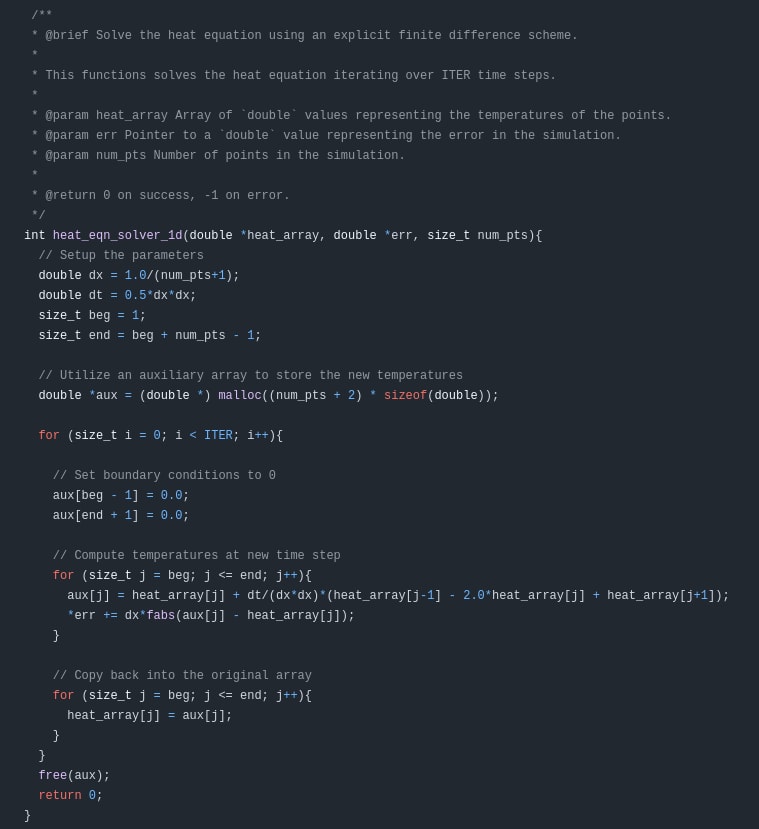
You were amazing
13 of you signed up, divided into 6 groups, and faced problems that you probably never faced before. You challenged yourselves without fear to prove that you can solve hard tasks (let's face it, we are all a bit addicted to that feeling) and no matter where you landed on the leaderboard, or if you even made it into it, you can all be proud of the attitude you have demonstrated and the clever solutions you came up with. Being our first hackathon we decided that everyone deserved at least a small prize for the effort, and we hope you're happy with the HPC gadgets you got from Atlanta. Don't expect us to be so kind in the future editions too. Who am I fooling, we're gonna go bankrupt trying to give you an extra Microsoft fidget spinner (real prize, just saying), and who knows, maybe in the future we could have RGB RAMs and GPUs as first place prizes. Give us a couple more raspberries and we'll see what we can do.
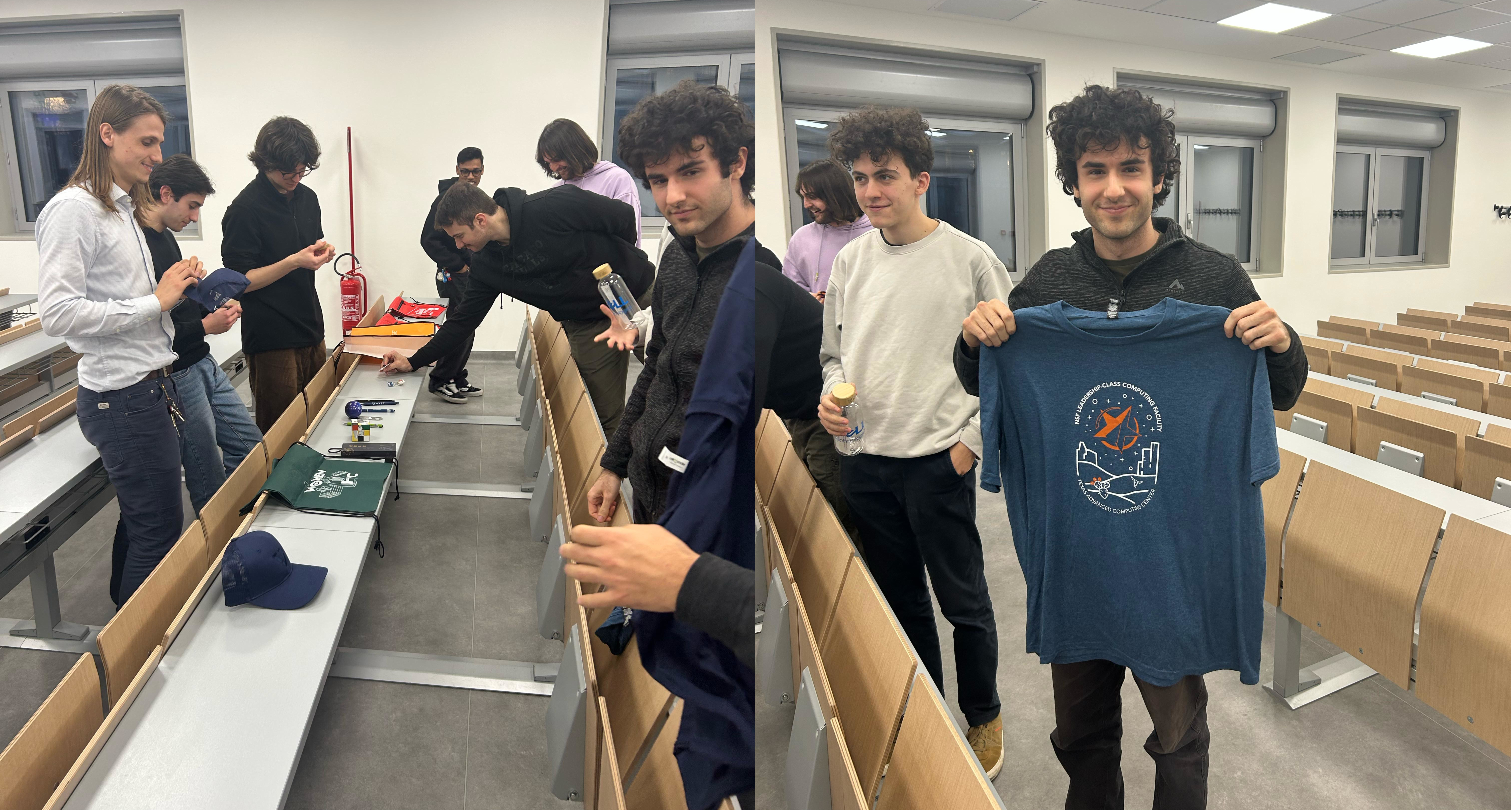
What now?
For all the participants we will publish the problems on our GitHub, if we ever do understand it, and the leaderboard will be re-opened on our website so that you can still try and get into it. All of you that registered will get an email detailing everything there is to know, stay tuned! In the meantime we will continue to aim higher and higher, with our infrastructure becoming more and more juicy. The hackathon was a great opportunity to get to know you and for you to get to know us, in the hope that we did not frighten you, and see what are the capabilities of some resourceful and willing students that want nothing more than building a vibrant community around the topics of HPC and computer science as a whole. This was nothing but our first milestone, with many more to come. We sure hope to have you at our side during this journey, as we can't be juicy alone in this world, and as we all know plums grow in clusters (I'm really bad at biology).
